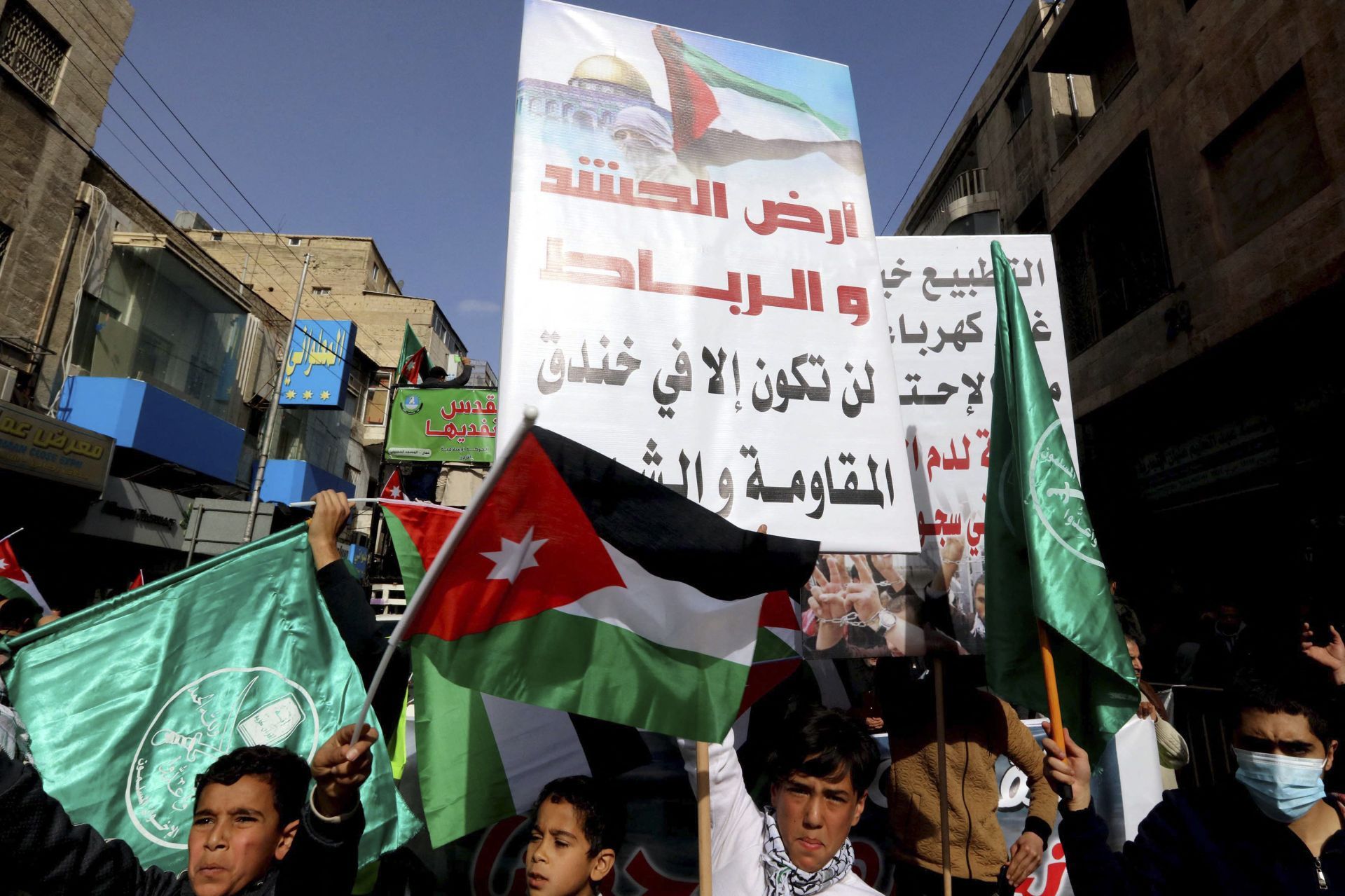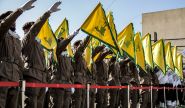- Home
- Middle East
- Is Jordan’s Stability at Stake?

©Khalil Mazraawi / AFP
Long regarded as a rare bastion of stability in a turbulent region, Jordan now finds itself at a critical crossroads. Confronted with rising security threats and significant political shifts, the Hashemite Kingdom faces mounting challenges that could place its future on an uncertain path.
Foiled Cross-Border Plot
On Tuesday, Jordanian authorities announced the arrest of 16 individuals accused of plotting attacks inside the kingdom. According to the General Intelligence Department, the suspects – linked to the Muslim Brotherhood – were trained and funded in Lebanon. They had reportedly established a rocket manufacturing site and a drone workshop, with at least one rocket ready for launch, capable of reaching targets between three and five kilometers away.
Jordanian intelligence had been tracking the plot since 2021, reporting the import of tools and materials for missile and drone assembly, alongside training missions abroad, primarily in Lebanon.
The suspects have been referred to the State Security Court. A security source disclosed that the leader of the cell is based in Lebanon. Al-Hadath also reported that Palestinian operatives in Lebanon admitted to training Jordanians in missile manufacturing.
Authorities believe the foiled plot is part of a wider covert campaign by Iran and its regional allies to recruit operatives for sabotage missions within Jordan – one of Washington’s key strategic partners in the region.
Regional Reactions
In the wake of the announcement, Lebanese Prime Minister Nawaf Salam contacted his Jordanian counterpart, Jafar Hassan, to express Lebanon’s solidarity and reiterate its commitment to preventing its territory from being used to threaten the security of any neighboring or friendly country.
Saudi Arabia also voiced strong support, with the Foreign Ministry praising Jordanian security forces for thwarting attempts to destabilize the country and incite unrest.
A Political Reshuffle Under Close Watch
The internal landscape is shifting as well. In the September 2024 parliamentary elections, the Islamic Action Front (IAF) – the political wing of the Muslim Brotherhood and Jordan’s main opposition party – secured 31 of the 41 seats allocated to political parties. This marks a notable political breakthrough, albeit within a tightly controlled political environment where Parliament wields limited influence.
Founded in 1992, with roots dating back to the 1940s, the IAF promotes the peaceful integration of Islamic principles into society. Nevertheless, Jordan’s government has not hesitated to clamp down on Islamist groups perceived as threats. The Muslim Brotherhood was banned in 2015, and its license was transferred to a more moderate, reformist offshoot – the IAF, which remains legal.
The IAF’s electoral gains were fueled in part by rising public anger over the war in Gaza. With nearly half of Jordan’s population of Palestinian descent, the party capitalized on widespread discontent to broaden its support base.
An Economy Under Strain
Jordan’s economy, already fragile, has been further battered by regional conflict. The war in Gaza has significantly affected tourism – an industry that contributes roughly 14% of the country’s GDP. Public debt is nearing $50 billion, and unemployment reached 22% in the first quarter of 2025.
Heavily reliant on foreign aid, Jordan signed a new strategic partnership agreement with the European Union in January 2025. The deal includes a €3 billion financial support package for the 2025–2027 period, with €1.4 billion allocated for investment and €640 million in grants.
Jordan’s Continued Solidarity with Lebanon
Despite rising tensions, Jordan has continued to demonstrate solidarity with Lebanon. In September 2024, the Royal Jordanian Air Force delivered eight tons of medical and food aid to Beirut’s international airport. Another humanitarian shipment followed in October, including mattresses, blankets and other essentials for those affected by the ongoing conflict
A Stability Under Strain
Jordan now finds itself navigating a precarious balance – managing cross-border threats, internal political change and economic stress. While the rise of the IAF signals shifting dynamics, the monarchy continues to skillfully control the political playing field in order to preserve national stability.
Even amid adversity, Jordan remains a regional anchor, extending support to neighbors like Lebanon while contending with its own evolving challenges. Looking ahead to the 2028 parliamentary elections, the kingdom faces a crucial test – balancing national security, political openness and economic resilience in a region that remains in constant flux.
Read more



Comments